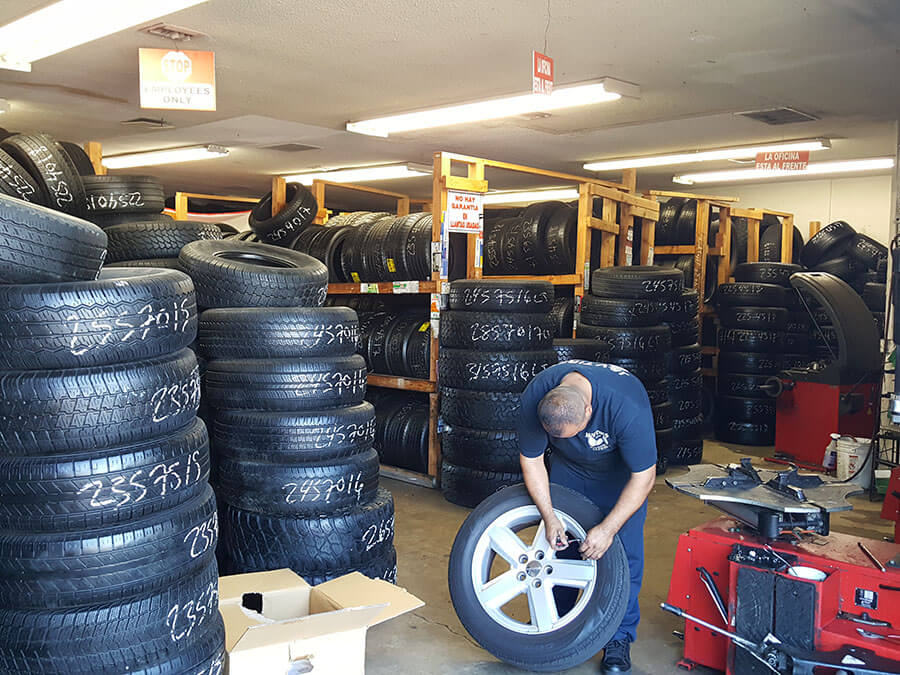Trusted Tire Shop Morris: Comprehensive Tire Solutions and Exceptional Service
Trusted Tire Shop Morris: Comprehensive Tire Solutions and Exceptional Service
Blog Article
Tire Solution: The Impact of Climate Condition
When it concerns ensuring ideal efficiency and safety when driving, recognizing the impact of weather on tire service is important. From scorching warmth to icy roads, each weather condition component can significantly influence tire performance and total driving experience. By diving into the effects of varying weather on tires, drivers can acquire useful understandings that might boost their lorry's efficiency and long life. In this conversation, we will explore the intricate relationship between weather problems and tire solution, clarifying the relevance of weather-specific tire maintenance techniques and factors to consider.
Warmth and Tire Performance
When subjected to heats, tires experience changes in performance that can substantially influence automobile security and handling. The heat produced from extended driving or heat problems creates the tire rubber to soften, resulting in minimized tread life and enhanced wear. As the rubber ends up being softer, the tire's grip on the road lessens, influencing stopping distances and total grip. In extreme situations, extreme warmth can even trigger tire blowouts, posturing a severe safety risk to the lorry and its occupants.
Additionally, high temperature levels can accelerate the procedure of tire aging, causing the rubber to wear away quicker. This can result in fractures, protrudes, and other kinds of damage that endanger the architectural stability of the tire. To alleviate the effects of heat on tire efficiency, motorists need to routinely examine their tire stress, revolve tires to make certain also put on, and check for any indications of damages. Furthermore, using tires especially made to stand up to high temperatures can assist preserve optimum performance and safety on the roadway.
Winter Results
Cold weather conditions can have a considerable effect on tire efficiency and safety. In chilly weather, tires might also lose air stress extra rapidly, which can impact dealing with and fuel performance.
To mitigate the effects of winter on tires, it is important to regularly check tire pressure and inflate them to the supplier's suggested degrees. Making use of wintertime or all-season tires created for cool climate problems can additionally improve grip and grasp on icy or snowy roadways - discount tires morris il. Proper tire upkeep, including normal examinations for wear and damage, becomes much more important throughout chillier months to make certain optimal efficiency and safety and security
Rainy Conditions Influence
Tires with worn-out footsteps are more prone to hydroplaning, where a layer of water constructs up between the roadway and the tire surface area, leading to loss of grip. To fight this, drivers must on a regular basis examine their tires for adequate tread deepness and take into consideration spending in tires specifically created for wet problems.

Snow and Tire Safety
Snow-covered roadways position distinct obstacles for chauffeurs, stressing the relevance of proper tire option and maintenance. When driving in snowy problems, having the appropriate tires can make a significant difference in safety and efficiency. Winter months tires are designed with special rubber compounds and step patterns to supply better grip on snow and ice contrasted to all-season tires. The deeper footsteps and sipes of wintertime tires help grasp the roadway better, decreasing the threat of YOURURL.com slipping and moving.
Along with making use of winter months tires, it is vital to guarantee they are appropriately blown up. Winter can trigger tire pressure to drop, affecting traction and handling (tires morris il). Regularly examining and keeping the appropriate tire stress is important for optimal efficiency in snowy problems

Weather-Related Tire Upkeep
When encountered with various weather, correct tire upkeep ends up being an essential facet of vehicle safety and security and performance. Weather-related tire maintenance includes a series of techniques focused on making sure optimum tire function and longevity in various weather condition situations. One key element of weather-related tire maintenance is tire pressure law. Varying temperature levels can cause tire stress to differ, affecting traction and gas effectiveness. On a regular basis readjusting and examining tire stress according to manufacturer suggestions is crucial for secure driving in altering climate condition. Additionally, tire tread depth plays a considerable function in managing different weather elements. Tires with adequate walk depth provide better grip on wet or icy roads, reducing the threat of hydroplaning or skidding. When step wear gets to a particular depth is crucial for preserving traction and stability in adverse weather, evaluating tire step consistently and changing tires. By prioritizing weather-related tire maintenance, vehicle drivers can improve safety and security, improve car performance, and prolong the lifespan of their tires.
Verdict
Finally, climate condition have a significant effect on tire performance and safety and security. From warm influencing tire pressure and put on to winter reducing grip, it is important to take into consideration the weather when keeping and using tires. Wet problems can decrease hold and lead to hydroplaning, while snow can boost the threat of accidents if tires are not appropriately equipped. Weather-related tire a fantastic read maintenance is critical in guaranteeing ideal efficiency and safety when driving.
In this discussion, we will check out the complex relationship between weather condition conditions and tire service, dropping light on the value of weather-specific tire upkeep techniques and factors to consider.

Report this page